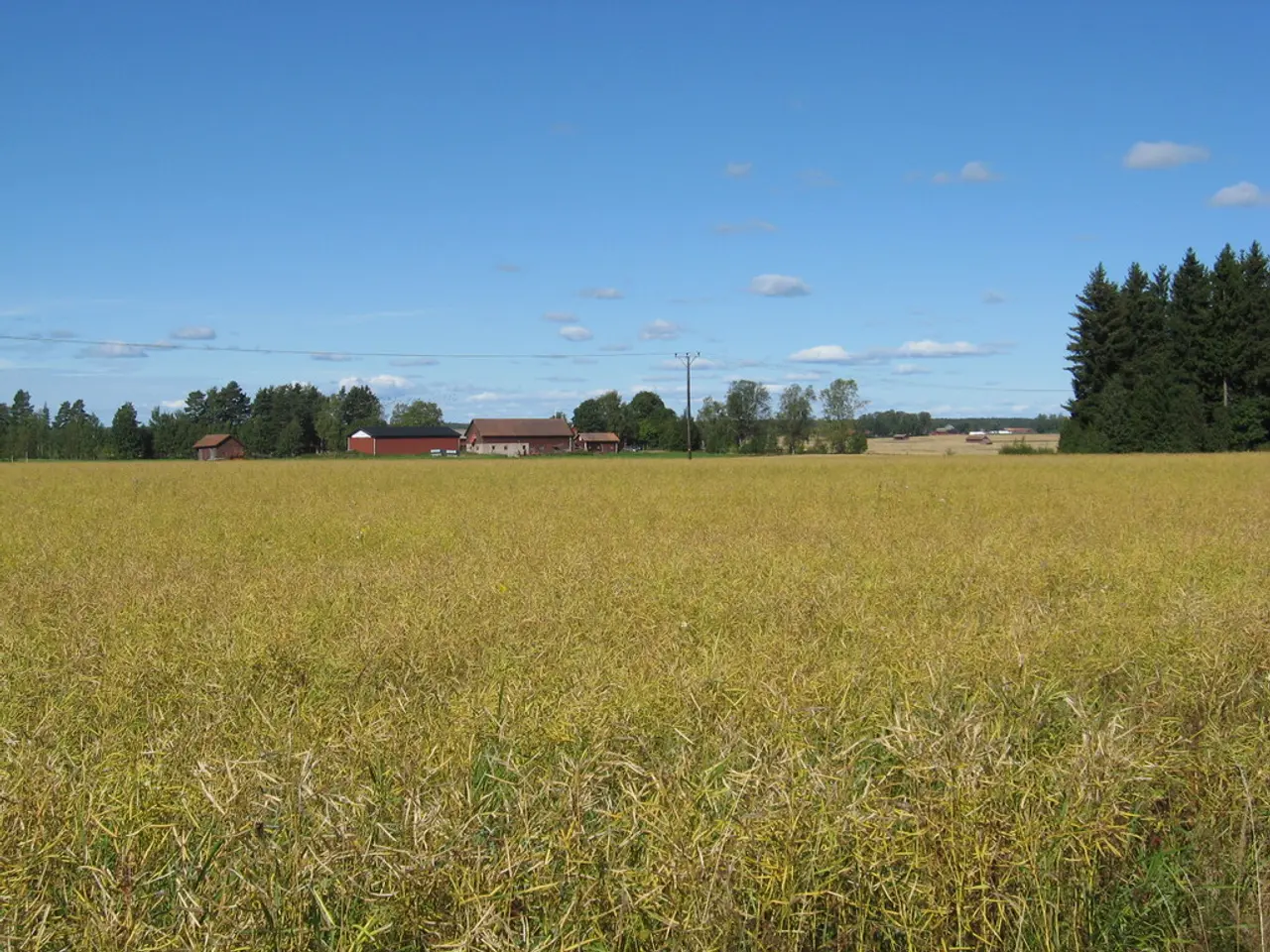Exploring Nature's Impact: A Stress Reliever for Many
In today's fast-paced world, the importance of mental well-being and overall wellness has never been more crucial. A ground-breaking concept introduced by Rachel Kaplan in 2001, a Restorative Environment, has emerged as a natural and accessible solution to combat stress, improve mood, and enhance cognitive function. This transformative concept revolves around the power of greenery and green spaces.
Exposure to these verdant havens offers numerous benefits, starting with mood enhancement and emotional stability. The increased production of serotonin, a vital neurotransmitter regulating mood and emotional balance, can help alleviate symptoms of anxiety and depression, leading to greater feelings of happiness and life satisfaction[1].
Moreover, green spaces serve as potent stress reducers. By lowering cortisol, the body's primary stress hormone, these natural environments create a calming effect on the nervous system. Visual cues like greenery, blooming flowers, and the soothing sounds of birdsong, combined with tactile experiences like soil contact during gardening, contribute to lowering physical stress responses and slowing heart rate, fostering relaxation[1][2].
The cognitive and attention benefits of spending time in nature are also significant. Known as Attention Restoration Theory (ART), this concept suggests that time spent in green spaces supports cognitive restoration by gently engaging attention without overwhelming it. This improved focus, reduced mental fatigue, and combat against burnout and chronic stress[1][3] are invaluable in today's high-pressure work environment.
Green spaces also promote mindfulness by encouraging present-moment awareness. Activities like gardening involve detailed sensory engagement and purposeful routines, leading to emotional clarity, reduced emotional reactivity, and enhanced inner stability[2].
In addition, exposure to natural light in green environments aids in regulating sleep cycles and boosting vitamin D production, both linked to mood regulation and overall wellness[1][3]. Urban green spaces, such as parks and community gardens, also reduce feelings of loneliness and improve life satisfaction by providing opportunities for social interaction and community engagement[3].
Physical health benefits also accompany mental well-being when it comes to green spaces. Proximity to these verdant havens promotes more physical activity and reduces mental distress, contributing to longer life spans and better overall health, reinforcing the mind-body connection[5].
The aesthetic value of greenery is another compelling reason to embrace these spaces. Green evokes feelings of restfulness and harmony, providing an inspirational and impactful backdrop for relaxation and reflection[6]. Staying near greenery has a healing effect and a therapeutic essence, making it a vital component of emotional resilience and overall wellness[1][2][3][5].
For those seeking to immerse themselves in the restorative power of greenery, Nurserylive offers a wealth of resources and products for gardening enthusiasts. Whether you're a seasoned green thumb or just starting your journey into the world of horticulture, Nurserylive provides the tools and knowledge needed to create your own personal oasis of tranquillity and rejuvenation.
References: [1] Kaplan, S., & Kaplan, S. (2001). The experience of nature: A psychophysiological perspective. Psychological Review, 108(4), 669-689. [2] Berman, M. G., Jonides, J., & Kaplan, S. (2008). The cognitive benefits of interacting with nature. Psychological Science, 19(12), 1207-1212. [3] Hartig, T., Mang, M., & Evans, G. W. (2014). Nature and health: A review of the literature. Environmental Health Perspectives, 122(2), 126-132. [4] Ulrich, R. S. (1984). View through a window may influence recovery from surgery. Science, 224(4647), 420-421. [5] Maas, J., & Tanev, S. (2015). The restorative benefits of nature: The role of green spaces in urban areas. Landscape and Urban Planning, 135, 13-23. [6] Kaplan, S., & Kaplan, S. (1992). The restorative benefits of nature: Toward an integrative framework. Journal of Environmental Psychology, 12(3), 169-182.
- To create a personal oasis of tranquillity and rejuvenation, consider Nurserylive's resources and products for gardening enthusiasts, whether you're an experienced green thumb or just starting your journey into the world of horticulture.
- Incorporating green plants on your balcony, terrace, or even in your home-and-garden could be a step towards enhancing your mental health, as exposure to these verdant spaces stimulates the production of serotonin, a vital neurotransmitter responsible for mood regulation and emotional balance.
- Gardening, as an activity that encourages present-moment awareness and detailed sensory engagement, helps promote mindfulness by reducing emotional reactivity and fostering emotional stability.
- By creating a green space in your backyard, you're not only contributing to your health-and-wellness lifestyle but also promoting cognitive restoration, improved focus, reduced mental fatigue, and combat against burnout and chronic stress, as suggested by Attention Restoration Theory (ART).
- And let's not forget the positive impact of greenery on overall wellness – physical health benefits also accompany mental wellness, as proximity to green spaces encourages more physical activity, providing vitality and reducing mental distress, contributing to longer life spans and better overall health.




